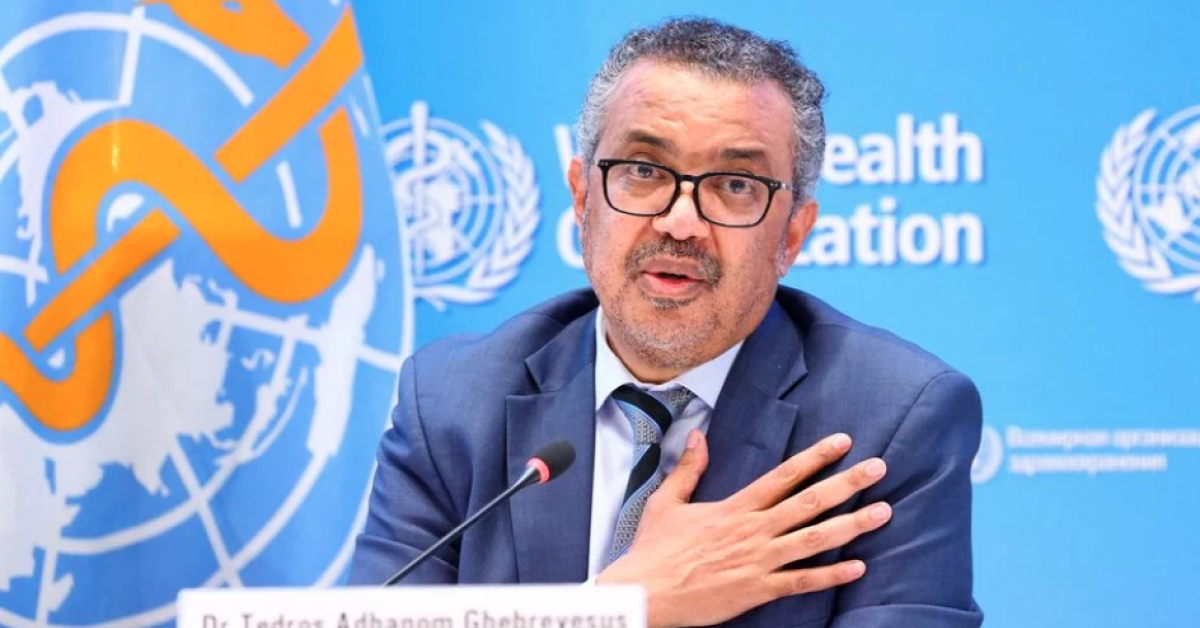
SWITZERLAND – The World Health Organization (WHO) is urging countries to introduce taxes on products such as alcohol, tobacco, and other harmful items – often referred to as “sin taxes” – to help recover lost funding caused by sharp reductions in global aid.
Speaking at a tuberculosis-focused town hall, WHO Director-General Dr. Tedros Adhanom Ghebreyesus warned that these aid cuts are already having a profound impact on health services worldwide.
“In the past few months, I have spoken to many ministers, and the impact on their programmes of the sudden cuts in official development assistance is severe,” Tedros said.
“We are seeing treatment interruptions, clinics closed, health workers losing their jobs, disruptions and more—not just for TB, but for malaria, HIV, neglected tropical diseases, vaccinations, maternal and child health, sexually transmitted infections, family planning and so on.”
The proposal comes just days after U.S. President Donald Trump formally requested that Congress cancel $9.4 billion in previously approved global health and development funds.
If approved, the decision would finalize cuts made by the Department of Government Efficiency (DOGE) to organizations like USAID, PEPFAR, WHO, UNICEF, UNDP, and UNFPA.
According to Tedros, countries must act fast. He advised governments to “start immediately with the sin taxes,” while also developing longer-term funding strategies such as social and community-based health insurance schemes.
Pushback from health advocates
The Global Health Council has called on US lawmakers to reject the proposal, calling it “a systematic effort to diminish the longstanding role of the United States as a global health leader.”
They warned that it risks lives, especially in vulnerable regions. The One Campaign echoed this concern, criticizing the plan for offering vague details despite its far-reaching effects. “When lifesaving assistance is at stake, Congress needs real details,” the organization said.
Trump defended the cuts, calling them a necessary step to eliminate “wasteful foreign assistance spending” and programs he claimed were “antithetical to American interests.”
Devastating impact on health services
If Congress approves the plan, US$ 500 million would be pulled from USAID’s global health programs, affecting child and maternal health, HIV/AIDS, and infectious disease responses.
According to March estimates, 29,000 health workers in Uganda were either laid off or at risk of losing their jobs due to the aid freeze.
“In Uganda, health workers lost their jobs, and contact tracing and surveillance efforts had to be scaled back,” said Irene Atuhairwe, Country Director for Seed Global Health.
“With limited resources and reduced staffing, health officials were forced to narrow their efforts, potentially increasing the risk of further spread.”
Outbreak preparedness for diseases such as Ebola, Marburg virus, mpox, and bird flu has been drastically reduced in Uganda—from over 50 trained responders to just six.
In addition, the Trump administration plans to cancel:
A call to preserve global health
“These are not fringe initiatives. They make the world safer, healthier, and more just,” said Elisha Dunn-Georgiou, President and CEO of the Global Health Council.
“When the US invests in equitable, inclusive, and evidence-based global health programs, we don’t just improve lives abroad –we strengthen public health security, global cooperation, and America’s reputation.”
She added, “These proposed cuts are about ideology, not money. And they put lives at risk.”
XRP HEALTHCARE L.L.C | License Number: 2312867.01 | Dubai | © Copyright 2025 | All Rights Reserved